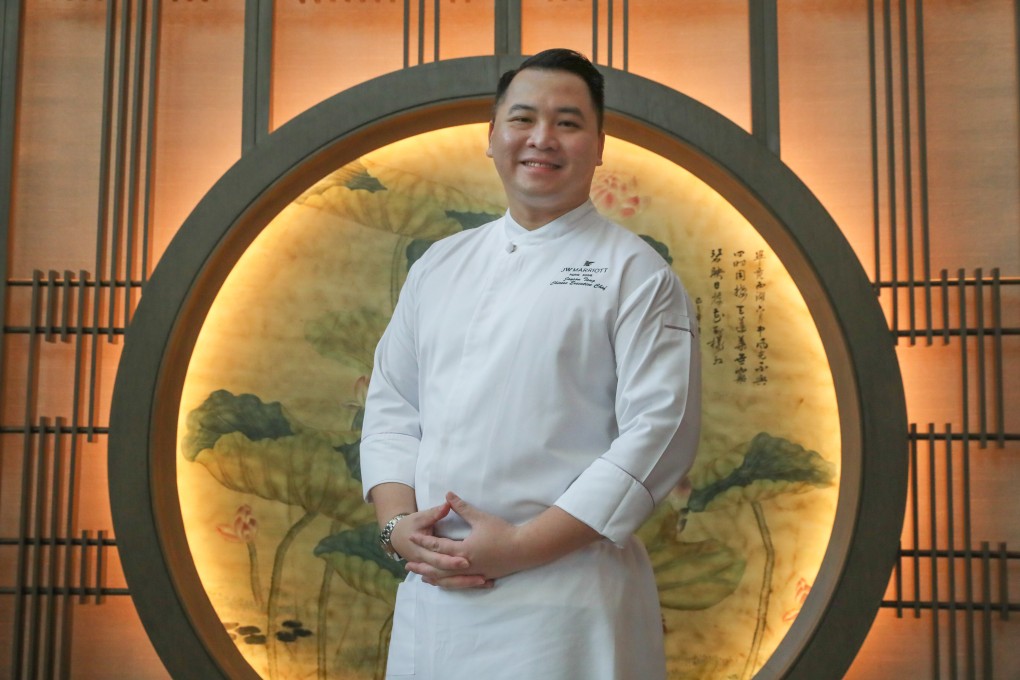Chinese chefs are like musicians who can’t compose, says Jayson Tang – ‘we aren’t creative either’
- The 34-year-old executive chef at Man Ho Chinese Restaurant laments the lack of what he calls ‘a proper training system’ for Chinese cuisine
- That hasn’t stopped his restaurant earning its first Michelin star, which he celebrated with tears in his eyes and a fist bump

How do you envision improving Chinese cuisine? “Chinese cuisine doesn’t have a proper training system. We in the industry should have ideas of how to prepare young people. In Chinese kitchens it’s a master chef and apprentice relationship, so it’s limited in training many people. We aren’t creative either: a Chinese chef is like a musician who can play music, but can’t compose.
“People know dishes like Peking duck and sweet and sour pork, but we should have others, too. [The late French chef] Joël Robuchon could open restaurants around the world and make French cuisine in his own style, and diners would accept it. Why not the same with Chinese fine dining?”
How did you get into cooking? “When I was 10 years old I saw how hard my parents worked at their dai pai dong so I felt compelled to help out. I washed dishes and brought food to customers. I could hold four cups of hot milk tea in one hand. By the time I was a teenager I was working on the weekends, making HK$100 each Saturday and Sunday.
“At 15 years old, I told my parents I wanted to cook. In the mornings my father made breakfasts and in the evenings his partner served hotpot and I prepared the ingredients. When I started studying at the Chinese Culinary Institute [CCI], at the age of 18, the instructors were impressed that I already knew how to fillet fish and chop meat and that I was fast.
The problem with Chinese kitchens is many chefs can do only one thing [...] In the Western culinary system you work in different sections
“From 8am to 5pm, I went to culinary school in Pok Fu Lam. Then I took the bus to Hung Hom to prepare hotpot ingredients until 11pm. I didn’t sleep much. I would clean two big bags of chicken intestines and cut up small fish before making thousands of fish balls, shrimp balls, beef balls as the orders came.”